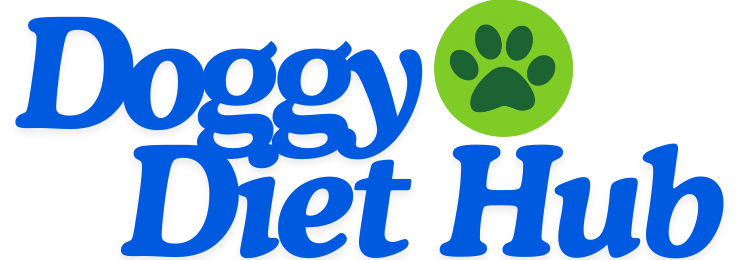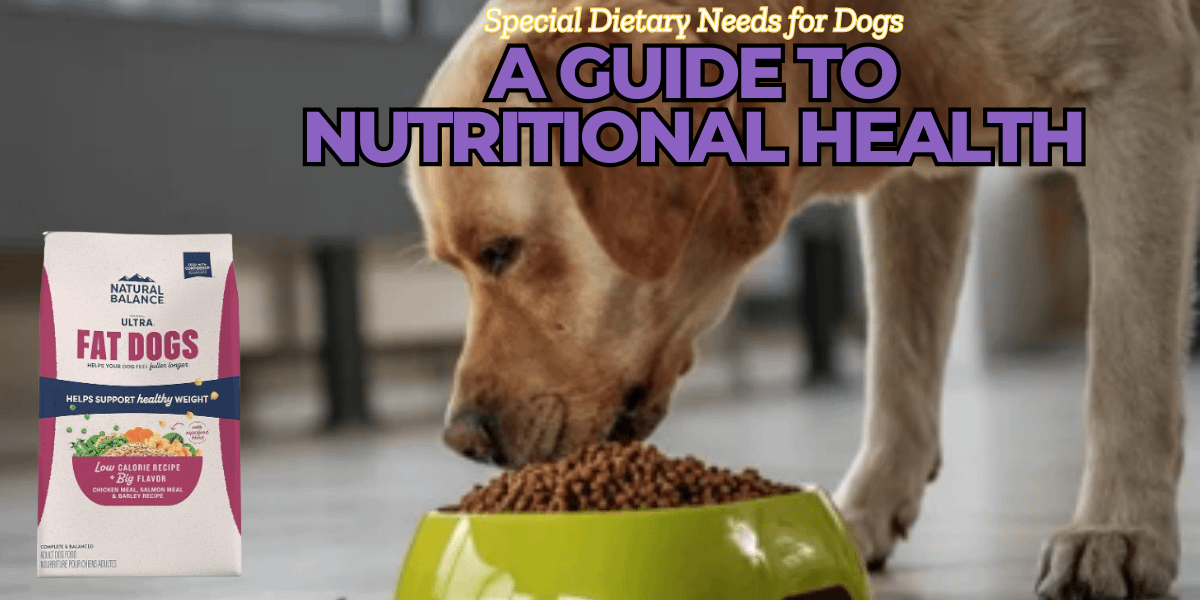Special Dietary Needs for Dogs: Why Nutrition Matters
Like us humans, dogs also need special food through which they can thrive and develop properly. Whether the food we choose for them is for their allergies or for their health and well being our primary need is to provide them with the right diet. If we understand the need for Special Dietary Needs for Dogs their lifespan and health and well being will improve to a great extent.
Table of Contents
Why Some Dogs Have Special Dietary Needs
Often, the need to change our dog’s diet arises due to their lifestyle or health problems. Some of the reasons why your dog may need to change their diet are illustrated by the information below.
- Food Allergies and Sensitivities
There are many types of allergies commonly found in dogs one of which is food allergies. Often dogs suffer from food allergies in which they experience symptoms such as itching, digestive problems or skin problems. Usually, the main reason why dogs develop these allergies is their food which contains ingredients used in food such as beef, chicken, grains and dairy products. If your dog has food allergies you may need to switch to a hypoallergenic or grain-free formula. And that is what is best for your dog. - Chronic Conditions
Many diseases are also found in dogs due to which there is a need to change the diet. For example, dogs often need a special type of diet to keep them under control due to diseases like kidney disease, heart disease or diabetes. For example, if a dog has kidney disease they need a low protein diet. Similarly, if a dog has diabetes they need a diet that controls the amount of sugar in the blood. - Weight Management
When your dog is overweight and you want to lose weight or keep it under control he may need a calorie controlled diet. Low-fat, high fiber dog foods not only help with weight loss but they are also important for their nutritional value. - Age-Related Changes
Dogs need special nutritional foods as they age because as they age they can experience decreased digestion and develop arthritis and other age related health problems which require dogs to have a high protein content.
ALSO READ THIS : Healthy and Delicious Homemade Dog Food Recipes for Weight Loss
Types of Special Diets for Dogs
The following is some information that shows some of the Special Dietary Needs for Dogs and how different types of diets can help alleviate health problems.
- Grain-Free Diet: Grain-free food is a boon for dogs that have digestive problems or allergy issues. Grain-free diets typically include sweet potatoes and peas as sources of carbohydrates.
- Prescription Diets: Often, when certain dogs have problems such as kidney disease or gastrointestinal issues a prescription diet is recommended by a veterinarian. This type of diet is especially helpful for dogs that have certain medical concerns.
- Limited Ingredient Diets (LID): A restricted ingredient diet is needed for dogs with food allergies because the diet includes selected proteins and carbohydrates to minimize allergic reactions.
- Raw and Homemade Diets: Some pet owners prefer homemade food according to their dog’s health and needs. Often, owners use a raw food diet which is known as “BARF” but while choosing this type of diet it is very important to be careful that this type of diet should be completely balanced to avoid nutritional deficiencies.

How to Choose the Right Special Diet for Your Dog
Here are some tips for your dog’s diet because it can often be overwhelming to choose the best food for your dog with Special Dietary Needs for Dogs.
- Consult Your Vet: Always consult your veterinarian to determine your dog’s health status and what type of food it needs.
- Read Labels Carefully: Whenever you buy food for your dog always look for high-quality ingredients and also make sure it does not contain unnecessary ingredients like corn and soy.
- Monitor Your Dog’s Health: If you are changing your dog’s diet be sure to monitor his weight, energy level and symptoms to see how he is reacting to the new diet.
Conclusion
Providing your dog with a specific and appropriate diet is very important for their good health and happiness. Choosing the right food for your dog can often make a huge difference in their health, whether they have allergies, chronic diseases or weight problems. Also, always consult your veterinarian when planning your dog’s for Special Dietary Needs for Dogs.
FAQ
What is the ideal diet for dogs?
Dr Leigh from Your Vet Online advises that it is important to ensure your dog’s food is both complete and balanced for its stage of life and if it has any medical issues. It is entirely acceptable to feed your dog a pure kibble diet. Or you can mix their diet up with some cooked or raw meat, fish, vegetables and rice.
What is a maintenance diet for dogs?
It contains all the nutrients suitable for your dog in its later stages of junior growth and adulthood. What your dog eats has a big impact on their health. This type of food is a way of providing the best possible nutrition for your dog without them gaining weight or bouncing off the walls.
Why is a dog’s diet important?
Your dog’s diet plays a significant role in their energy levels, coat condition and immune system. That’s why understanding the essential nutrients and the impact of proper nutrition is vital.

